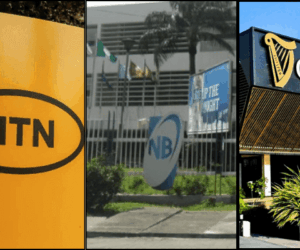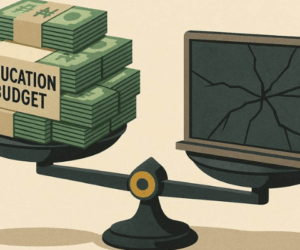…Cost-cutting measures in order – Economist
…Citizens count the cost, less impacted
…It shouldn’t be marketing tool – Experts
In the first quarter of 2024, Nigerian Breweries Plc, announced its audited results for the period ended December 31, 2023, revealing a net loss of N106 billion during the year.
But many were shocked considering the high level of consumption of alcoholic drinks in the country.
As one regular patron of a popular outdoor bar in Ikeja puts it, “That is not true with all these bars and new ones opening every day. I know how much I spend on beer every weekend. That is not true”.
As well, many of the 80 million subscribers of MTN Nigeria doubted when the telecoms giant reported a N400.44 billion loss after tax for the year ended December 31, 2024.
But both are realities as the corporate giants blamed the loss on the impact of the devaluation of the naira on their foreign exchange transactions, among other challenges.
Sadly, and in response to the situation, the two and many others, have reduced funds towards their corporate social responsibility (CSR) expenditure, which are targeted at the masses.
The above are probably the reasons some consumer-oriented initiatives such as reality TV shows are less seen on the screens nowadays, as well as some empowerment projects abandoned by many corporate organisations.
That also accounts to why Nigerian Breweries Plc suspended the sponsorship of its flagship CSR projects such as the widely-cherished Guilder Ultimate Search, Amstel Malta Box Office, Maltina DanceAll, Star Trek, Star Quest, among others that ruled Nigerian airwaves in the 2000s.
That also accounts to why Who Wants to Be a Millionaire? sponsored by MTN then, was rested for some years, and also why MTN Project Fame, adjudged as the best music talent and youth empowerment project in West Africa, may not come back after many years off the screen.
The Etisalat Prize for Literature died a natural death when 9Mobile acquired the company, as well as ANA Prize for Literature, sponsored by Cadbury, while Glo Sings, Glo Ambassadors are no more.
The Gulder Ultimate Search, went off air for years due to lack of sponsorship, Nigerian Idol had a six-hiatus, while Project Fame was rested, for the same reason.
Apart from breweries and telecoms industries, the decline in CSR spending also hit the banking industry with a 70 percent decrease from N23.9 billion in 2021 to N7.2 billion in 2022, a sad development that pointed to the substantial decline in CSR activities by Nigerian banks.
Read also: Building a stronger brand: The power of financial management and CSR
In defence of the banks, Saviour Osarhieme, a chartered accountant with a tier-one bank, explained that the harsh economy and advance in technology are impacting the capacity of many banks to budget more funds for CSR.
“We are in a very stiff competition and scramble for customers with fintechs, microfinance and other non-bank financial institutions,” Osarhieme said.
“They lure customers with easy account opening, good interest rates, no collateral for loans and other unthinkable things,” he said.
But Busola Fadahunsi, a senior manager with Access Bank, counters the decline in CSR spending, saying that the banks are among the top performers in CSR in Nigeria today.
According to her, apart from Dangote Cement’s N13.19 billion, UBA, Access and Zenith, were among the top spenders in the 2024 CSR in the country, but in areas that directly impact the society and not necessarily in entertainment as most people will expect.
As well, while receiving the Best Company in Poverty Reduction, Best in Climate Action and 2nd Runner up, Most Responsible Organisation in Africa awards at the SERAS Awards 2024, Temitope Oguntokun, director, corporate affairs and regulatory, International Breweries (IBPLC), insisted that a lot Nigerian companies are still committed to creating a future with more cheers for their host communities and the planet, which boils down to good CSR funding and execution.
While reducing poverty is core in CSR spending, Oguntokun explained that as the Best in Poverty Reduction, IBPLC has been at the forefront of efforts to reduce poverty through its innovative Kickstart Initiative, which supports young entrepreneurs through business training, mentorship, and the provision of grants to kickstart prospective business concepts or upscale existing businesses.
The CSR, which is not entertainment-based, according to Oguntokun, has seen over N600 million investment to impact businesses across 30 states in Nigeria with over 2,000 direct beneficiaries.
In the same vein, Omoboye Odu, head of SMEs Partnerships and Collaborations, Ecobank Nigeria, sees CSR growing rather than declining as her bank supports SMEs to scale up to global markets, amid other sponsorships like art fairs, exhibitions, fashion shows and competitions.
She described the annual Adire Lagos Fair, sponsored by the bank, which had its fourth edition this year, as the CSR of the bank for SMEs as they displayed their wares free of charge, while making money and also promoting the unity and economy of Nigeria.
However, many think that most companies are benefiting more from their CSR initiatives than the consumers they are meant to impact.
For Chike Osebuka, a singer, who stages as Chike, CSR are often not for empowerment, but business for the sponsors, who are after return on their investments.
The singer, who participated in the Project Fame and The Voice Nigeria, insisted that the end goal of reality TV shows is not necessarily to make one a star as the sponsors also smile to the bank.
Bryan Ochefu, founder of a modelling agency, confirmed the decline in CSR activities, while blaming it on the harsh economy.
“I know how busy my company used to be before the pandemic. We used to have many sponsorships for events in and outside Nigeria, but such hardly come now because many companies are cutting costs, especially CSR and media to survive the harsh economy,” Ochefu said.
He also argued that most beneficiaries of an average CSR project in the country hardly sustain their gains.
According to him, over 70 percent of winners in any reality TV show can hardly point to how the huge sum they won impacted their lives afterwards.
“There is hardly a winner of a reality TV project in Nigeria that judiciously used the prize money. Check.
“Some of our corporate giants who still do CSR, do it for doing sake because a lot of the projects only last for a few months or a year and pack up. They should review their model of empowerment for CSR to really work in Nigeria,” Ochefu suggested.
The modeller also blamed the decline on the rationale for CSR as many corporate organisations, according to him, use it as a marketing tool rather than for empowerment.
“The betting companies are scrambling to sponsor Big Brother Naija all because of their presumed huge return on investment and not necessarily empowerment. So, their CSR has become a marketing tool,” he said.
Considering the harsh economy and cost-cutting measures by most corporate organisations, Reginald Ogisoh, an economist, warned of further decline in CSR funding, noting that companies will always give priority to their survival than to charity.
“Except the economy rebounds soon, companies will keep spending less on CSR. They can quote billions spent on CSR, but you can’t track all. Again, the huge amount spent is probably half of what they spent before now if you consider the impact of inflation and devaluation of the Naira,” he said.









